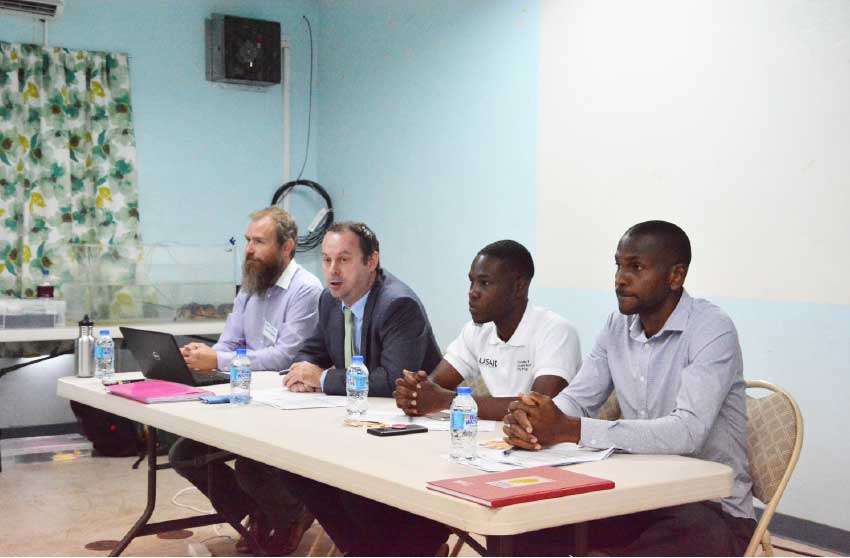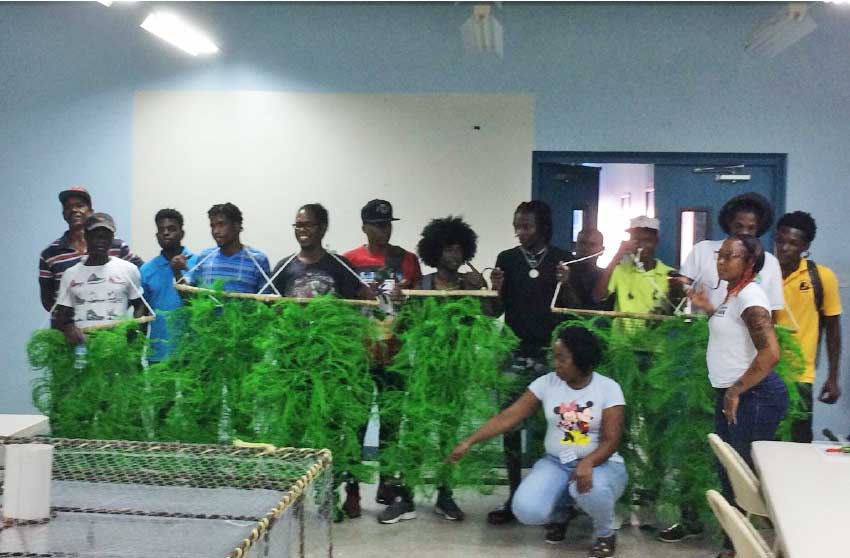
OVER 20 Saint Lucians are now better equipped to take advantage of the economic opportunities in lobster farming. This is thanks to a major collaboration between the UK Government, the Department of Fisheries and the United States Agency for International Development (USAID).
This trio of organisations mounted a successful 4-day Spiny Lobster Aquaculture Workshop (Sept. 3-6) at the Fisheries Department’s southern office in Vieux Fort. The technical training was provided by the Centre for Environment, Fisheries and Aquaculture Science (Cefas), a UK Government agency. This training initiative by Cefas is funded by the Commonwealth Marine Economies (CME) Programme. Launched in 2016, the programme aims to support the marine economies of 17 Commonwealth Small Island Developing States (SIDS) by helping them to identify the potential of developing ‘their marine economies in a sustainable, resilient and integrated way’.
At the workshop opening, UK Resident British Commissioner, Steve McCready, reiterated the UK Government’s commitment to the Commonwealth family of nations and particularly to creating a sustainable economic future for the youth. This workshop was evidence of this commitment in addition to other activities under the CME Programme taking place locally such as the seabed mapping project. Cefas’sDr. Matthew Sanders highlighted the project’s aims which included fostering economic opportunities for fishing communities and reducing pressure on current lobster stocks by developing sustainable aquaculture. He also indicated that through the CME Programme, Cefas was carrying out similar initiatives in other OECS countries and the wider Caribbean region.

The USAID via its Community, Family, Youth Resiliency Programme (CFYR) supported the project by providing a life coaching and soft skills component. USAID’s Deputy Chief of Party, Bertrand Laurent, and Senior Life Coach, Ajani Lebourne, both praised the project and said that they were happy to be a partner in helping youth to gain employable skills, a vital aim of its CFYR programme. Participants were trained in a wide range of areas including spiny lobster biology and aquaculture; animal supply and seedstock selection; as well as food preparation. Site visits to Savannes Bay and Moule-a-Chic were conducted to give them a practical experience of the topic. Deputy Chief Fisheries Officer, Thomas Nelson, thanked all the agencies involved for their invaluable support and commitment to Saint Lucia developing its marine economy and diversifying the fisheries sector.





![Attendees at the UHC logo and website launch [Photo credit: GOSL]](https://thevoiceslu.com/wp-content/uploads/2026/02/Attendees-at-the-UHC-logo-and-website-launch-380x250.jpg)






![Remnants of an alleged drug boat blown up in a lethal strike by the U.S. military last week surfaced off Canouan on Saturday [Photo credit : St Vincent Times]](https://thevoiceslu.com/wp-content/uploads/2026/02/Remnants-of-an-alleged-drug-boat-blown-up-380x250.jpg)
